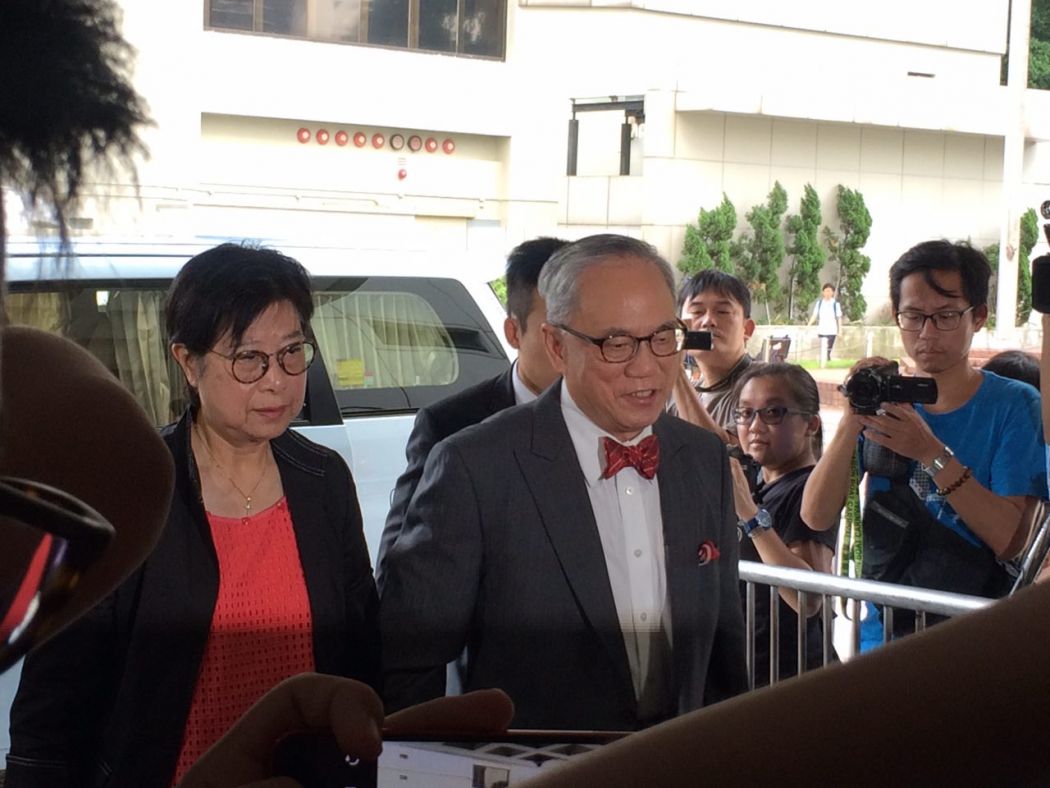Does anyone these days remember the Donald Tsang Yam-kuen who saved Hong Kong? Not once, but twice.
The first act of good guardianship came during the Asian financial crisis of 1998, when Tsang, then the city’s financial secretary, acted decisively to wrest the Hong Kong dollar from the greedy paws of hedge-fund speculators such as George Soros, who attempted to turn Hong Kong into a playground for currency and stock manipulation.

Tsang, acting in concert with the then-head of the Hong Kong Monetary Authority, Joseph Yam Chi-kwong, went on an unprecedented HK$118 billion stock-buying binge that made the government the largest shareholder in a number of blue-chip corporations and successfully drove the avaricious, amoral Soros and other like-minded “crocodiles” out of our city.
Tsang once again answered the emergency bell in March of 2005—this time rescuing the city from the hapless Tung Chee-hwa. Under siege for an accumulation of missteps and misjudgements, Tung was compelled to resign as the city’s first chief executive, handing over the reins of power to Tsang, then-chief secretary. Although Tung cited ill-health as the reason for his resignation, we all knew that he had been pushed out by the Chinese leadership in Beijing after losing the confidence of the Hong Kong people and receiving a thumbs-down from officials at the liaison office.
With a confident bounce in his step and an international reputation for the decisive leadership and alacrity he had displayed as finance secretary, the 61-year-old Tsang, sporting his signature bow tie, took over amid an atmosphere of hope and renewal.
The colourless Tung, scion of a Shanghainese shipping magnate, had been born with a silver spoon is his mouth. Tsang, by contrast, was the humble offspring of a Hong Kong policeman who through hard work, practical intelligence and steady competence had risen to the top in the city he clearly loved. The embodiment of Hong Kong’s famous “can-do” spirit, he was right man for the job. He knew it; we knew it. The future brightened.
Then, of course, everything went terribly wrong.

From our present vantage point, it’s easy to look back on the early days of the Tsang administration with a certain nostalgia as that was the last time Hong Kong felt pretty good about itself. Yes, even then, Beijing’s authoritarianism cast a long shadow over the city, but with this super-competent Son of the Soil in charge of Hong Kong’s historic balancing act, it seemed “one country, two systems” had a fighting chance of success. Hong Kong would be okay.
By the time Tsang left office in 2012, however, he had managed to become every bit as unpopular as his predecessor. Tsang, too, had been crippled by Hong Kong’s dysfunctional political system, and he also faced allegations of corruption that would shatter the peace of his retirement years. Today, aged 73, Tsang is a broken man whose legacy has been forever tainted.
In February, Tsang was sentenced to 20 months in prison after a jury found him guilty of misconduct in public office but could not reach a verdict on the more serious charge of bribery. Last week, a second hung jury again spared him a bribery conviction and more jail time, and he now hopes for a successful appeal of the guilty verdict in his misconduct trial.
But even if Tsang wins that appeal and walks free, people will not forget his unseemly jetting and yachting around with tycoons while he was CE, nor the dodgy arrangements he made with billionaire buddy Bill Wong Cho-bau for the luxury three-storey Shenzhen penthouse that he planned to make his retirement home.
Whatever Tsang’s legal fate turns out to be, to ordinary Hongkongers his associations with the city’s tycoon class during his time in office smack of the sort of business-government collusion that has made Hong Kong a rich man’s paradise but a hellish place for the poor—who currently make up nearly 20 per cent of the city’s population of 7.4 million—and a daily grind and scrabble for everyone else.
“Never in my judicial career have I seen a man fallen from so high,” said presiding judge Andrew Chan Hing-wai as a shaken Tsang stood in his courtroom last February after receiving his jail sentence for misconduct.
There was a sympathy in his words shared by many others in Hong Kong who recognise a true tragedy when they see one. A good but flawed man had fallen and, along with that fall, our city had also taken a tragic tumble into the bitterly divisive years of the Leung Chun-ying administration.

Tsang’s flirtations with tycoons may appear mere peccadillos to many Hongkongers still shocked by Leung’s failure to declare the HK$50 million payment he received from Australian engineering firm UGL, a goodly portion of which he was paid while occupying Government House.
True to form, Leung has been so unresponsive to an eight-month Legislative Council probe into the UGL payment that even the pro-establishment head of the select committee leading the investigation, Paul Tse Wai-chun, is fuming. Tse now threatens to invoke Legco’s Power and Privileges Ordinance so as to compel Leung to testify before his committee. Let’s hope he does so.
Meanwhile, as Tsang has wound up behind bars, Leung now serves in the honorary position of vice-chairman of the National Committee of the Chinese People’s Political Consultative Conference.
Again, most people in this city recognise a tragedy—and a travesty—when they see one.
